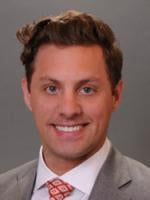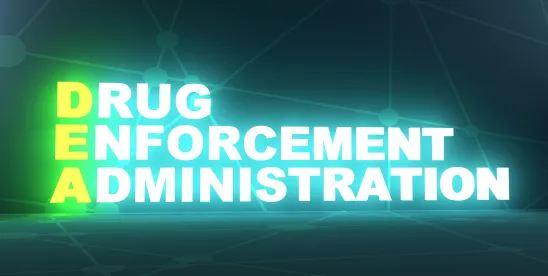In the wake of the U.S. Drug Enforcement Agency’s (DEA) notice of a forthcoming proposed rule with a third extension of flexibilities related to telemedicine prescribing of controlled substances, some industry stakeholders anticipate the rule will extend the current DEA telemedicine prescribing flexibilities for at least another year to avoid the Telehealth Cliff. However, the proposed rule has not yet been made public and significant questions remain as to the rule’s specifics. The rule is expected to be released and available for public review before the end of the year.
In a recent episode of the Health & Hype podcast, Nathaniel Lacktman, chair of the firm’s national Telemedicine & Digital Health Industry Team and member of the American Telemedicine Association Board of Directors, joined host and Zivian Health founder, Rafid Fadul, M.D. to explore the latest updates on DEA regulations, the future of telemedicine, and how health systems, hospitals, and startups can innovate while staying compliant.
The conversation opened with a brief history of the intersection of the DEA’s rules and the 2008 Ryan Haight Act, which amended the Controlled Substances Act to restrict clinicians from prescribing controlled substances unless the clinician conducts an in-person exam of the patient. Lacktman highlighted the DEA special registration exemption that offered a way for eligible health care providers to deliver patients flexibility through prescribing without an in-person exam.
“We are nearing the end of 2024 – 16 years after the Ryan Haight Act was signed into law – and the DEA has not issued a regulation to activate the special registration for telemedicine,” Lacktman commented. “It’s frustrating. Someone who operates an illegal internet pharmacy or pill mill is not going to follow the DEA rules anyhow, so that operator does not care whether or not a viable special registration exists,” explaining how those most affected are telemedicine companies, hospital systems, academic medical centers, and community mental health centers who need and want to service their patients responsibly, and care about compliance with these laws. “It is that cohort of clinicians, arguably the most well-equipped, most well-intended, who are experiencing harm from the lack of a special registration,” he emphasized, adding that in this delay harms “the types of clinicians who are most committed to caring for these patients.”
The DEA received backlash in late August 2024 following the unveiling of the DEA’s internal plans to release a regulation with devastating consequences for the telemedicine industry and the patients it serves. It is evident certain parts of the rule were included with the intent of making it functionally impossible to practice telemedicine. Particularly glaring was the requirement for telemedicine providers to conduct half of their patient exams in-person. Another requirement was checking the prescription drug monitoring programs (PDMPs) of all 50 states – even though some states do not even have a PDMP – before a prescription can be issued for a patient.
The delays and rough going have led some stakeholders to question if the DEA, historically with a policing and anti-diversion mission, is the appropriate agency to make rules on the clinical practice of medicine (medical boards are not tasked with policing illegal drug trade). An informed, thoughtful, and patient-oriented approach coupled with a beneficial and important guardrails against illegal diversion would offer a better path forward for the telemedicine industry. A series of public-private workgroups, where expertise can be combined and ideas freely discussed, may be best forum to accomplish the development of a telemedicine special registration rule.
“We should allow legitimate practitioners, and the patients who rely on them, to prescribe the types of medications their patients need to live healthy lives,” he added.
Want to Learn More?
- Listen to the full Health & Hype interview here:




 />i
/>i
